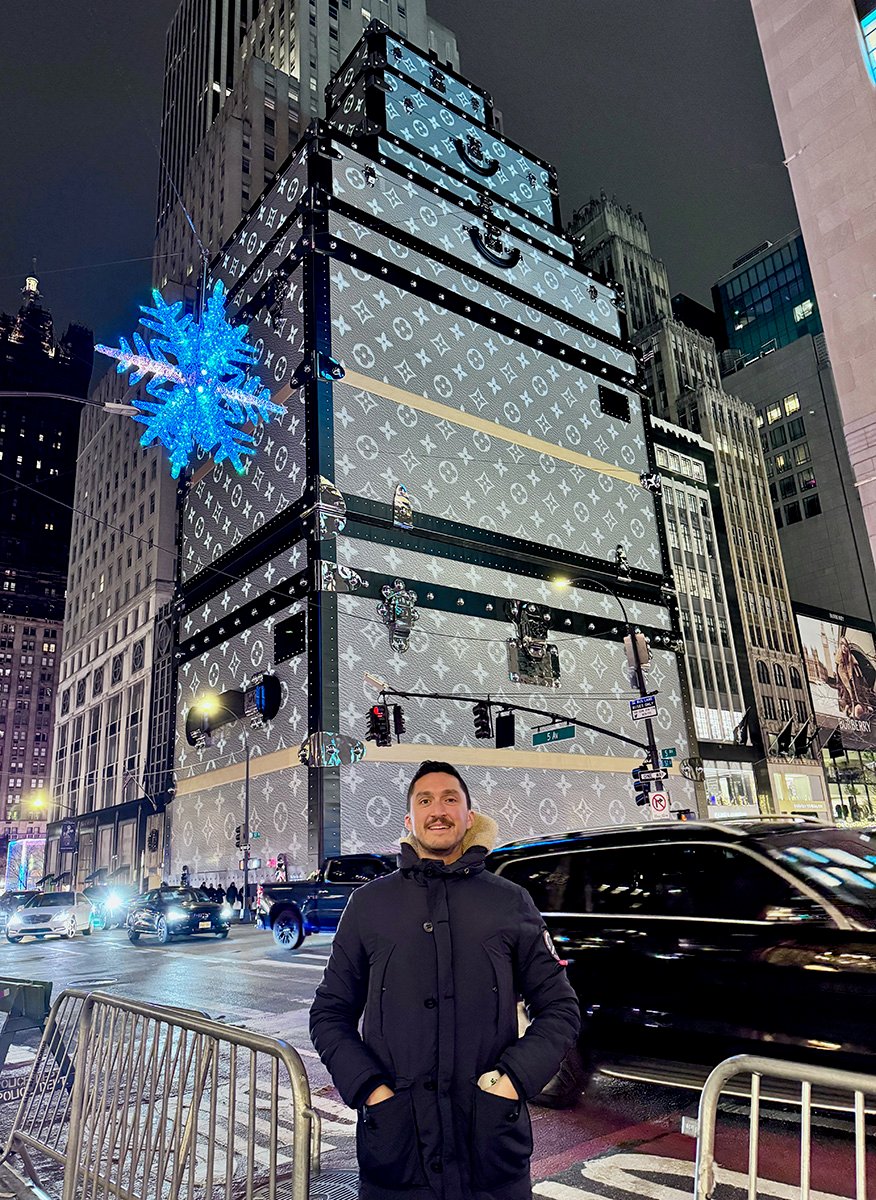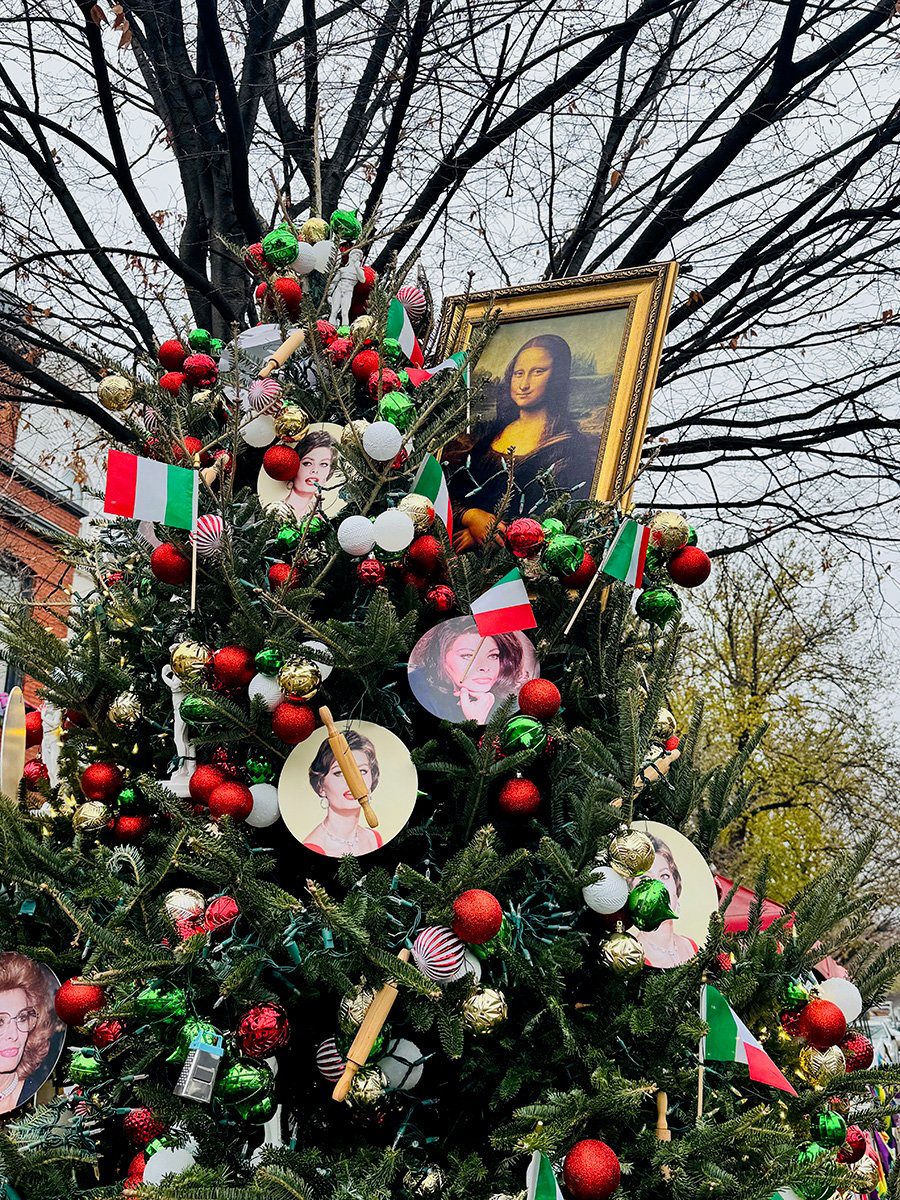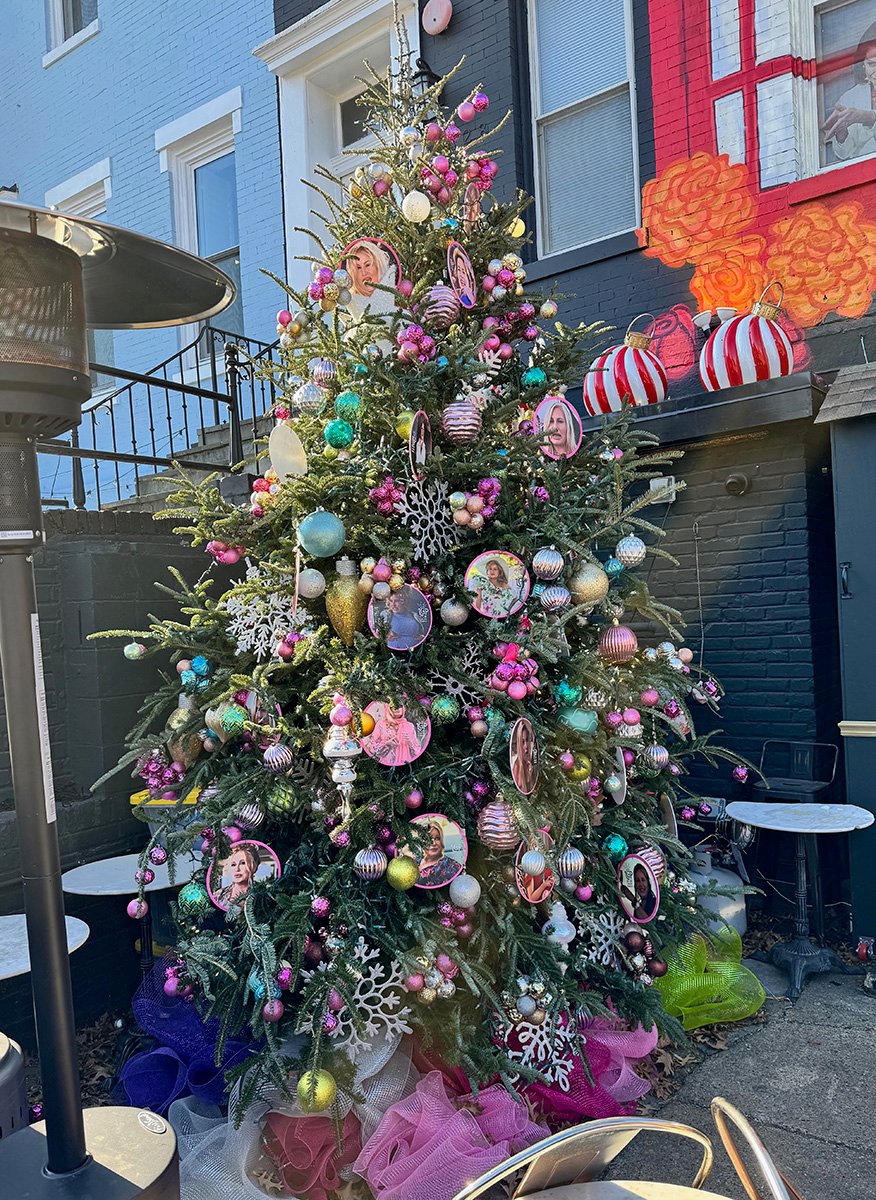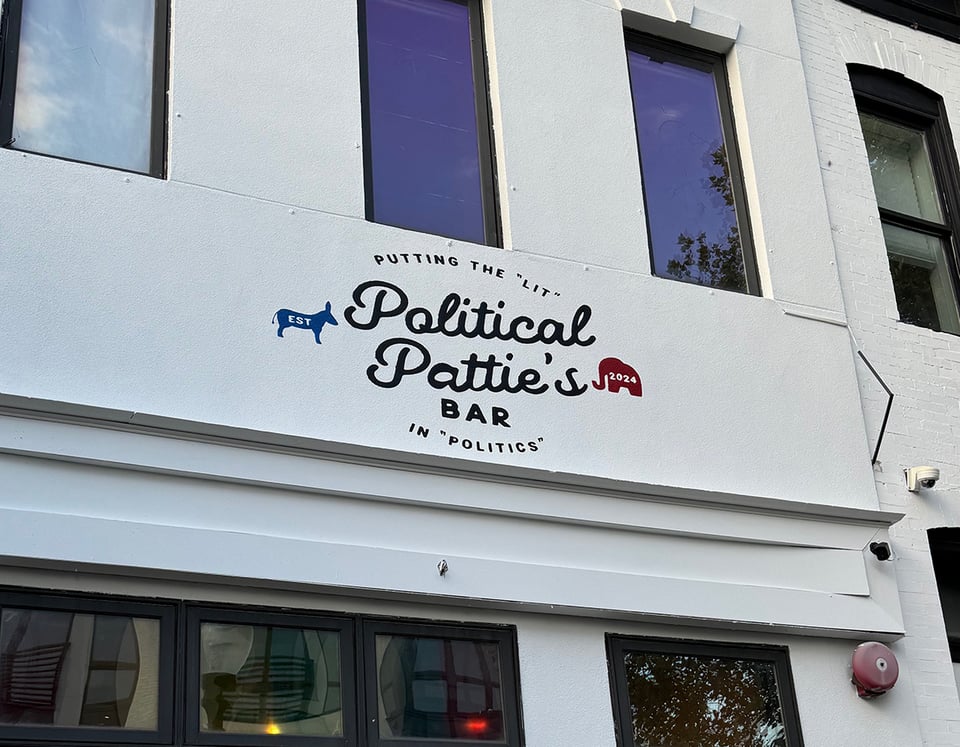How I'm Reclaiming Christmas 🎄😌

🌎 The Big Topic: Christmas is a chore if you let it be one
In America Thanksgiving is the fourth Thursday in November and the following day is considered the start of the Christmas season (though plenty of stores are willing to empty your wallet in holiday sales as early as October). This year Thanksgiving was on the 28th, which is the latest date on which it could occur, thus compressing the time to fulfill the Christmas season’s unforgiving burdens.
Each year I approach Thanksgiving with some dread, knowing the demands and chores of the Christmas season are not too far behind. We all open our email to find relentless campaigns from commercial and charitable organizations enticing us to spend on Black Friday, Cyber Monday, Giving Tuesday, or whatever new transactional “holiday” they conveniently invented to shoehorn into the year-end spending sprint.
I somewhat less wearily eye other chores that await outside my email inbox: sending holiday cards, putting up decorations, attending parties, and hosting my own.
Weighing costs and benefits
I call these traditions chores because they can be tedious and arduous. However, just because something is a chore doesn’t mean it’s not worth doing. Some years ago someone said I “liked” doing laundry, which was a fundamental misunderstanding of adult responsibilities. I don’t like doing laundry, but I do it because I like the result of having clean clothes in my closet. The chore of washing, drying, and folding is a price worth paying.
Likewise, there are some parts of the holiday I enjoy, despite the effort. I like coming home to a lit Christmas tree in my front window, especially since the sun sets so early in December in D.C. Spending a few hours decorating my house is a cost I’m willing to bear since I know I will enjoy it for weeks.

I also like writing Christmas cards to friends and family and many recipients express amusement and gratitude, especially since I handwrite a short message. (I construct a small crossword puzzle for one lucky recipient who did the same for me a few years ago.)
Designing, printing, writing, and mailing 75 cards is time-consuming and expensive, but I think it’s worth the cost. I recognize not everyone has the desire, time, and money to reciprocate and that’s ok.
Consumption as an empty token
There are aspects of the season I deeply dislike and they focus mostly on thoughtless, forced consumption: the implicit (and sometimes overt) pressure to give gifts that recipients neither requested, nor wanted, nor needed. This consumerism turns off a lot of people from Christmas.
My mother said Christmas is supposed to be stressful and listed all the people for whom she expected me to buy gifts. Each year she issues these demands and struggles to specify what I should get for these people. I know these gifts will find their way into relatives’ closets or regifted as they are inevitably unappreciated and unrequested. Nevertheless, a gift, in her view, is not something useful for the recipient, but an immaterial token.
She further demanded I bring food, not because we could actually eat it, but solely because other people are bringing food. From past experience, I know much of this food will get thrown out because there is no way we can eat all of it. I must cook not for people’s nourishment, but as another immaterial token.
While listening to the demands, I pictured myself spending hours in the dark of night after work wandering around shopping malls not knowing what to buy for people who had not asked for anything. I recalled the times I bought for family an expensive gift that never got used; in fairness, they had never asked for it. I recalled the times I brought food just to throw it out later because there was too much food.
In years past, I have told my mother and friends that I dislike this aspect of Christmas so much, I have considered opting out of Christmas entirely. The time and effort dedicated to performative waste is not fun for me. In previous years my mother dismissed that view as mean-spirited.
Why do we do this to ourselves? Why can’t we just have a holiday that is not centered around excessive consumption and thoughtless consumerism?
Setting gift expectation or feeling guilted into gift-giving sets an admission price to spending time with family— an admission price we wouldn’t dare charge on a random weekend the rest of the year.
But it’s the thought that counts
Economists have debated the usefulness of holiday gift-giving. Many conclude that because a recipient frequently values the gift much less than what the giver paid for it, both consumers and the economy suffer what Joel Waldfogel at the University of Minnesota calls a deadweight loss due to Christmas.
I’d go even further to say an unwanted gift is an oxymoron because it’s really placing a burden on the recipient.
But isn’t it the thought that counts? Waldfogel replied in Vox many years ago:
I think you’re saying, “Doesn’t it miss the point to quantify the costs?” But I’m saying the flip side of that is if you think we can achieve the benefits without lighting a lot of resources on fire, maybe we can achieve the warm feelings associated with giving without buying a lot of stuff people don’t want.
As I was drafting this issue, The Atlantic published an essay about people who skip holidays because holidays have become laborious. This passage resonated with me:
Some people might stick to stressful holiday plans not just out of care for their family but because passively going along with traditions might be easier than challenging them, Samantha Brennan, a philosopher at the University of Guelph, told me; they grumpily show up as if they have no say, are present without really being present, and then feel that they’ve done their part until the next holiday. But growing up means taking some responsibility for your part in shaping family relationships. “You don’t just get to go back to being the kid in the family, where the parents tell you what to do and then you complain about it,” she said. “You’re an adult, and you negotiate with your parents the same way you negotiate with other adults.”
After reading this, I decided it was time to negotiate rather than capitulate as I've done in years past.
For years I inferred that if I wanted to spend time with family on December 25 as opposed to the other 364 days of the year, I would have to buy all these unwanted gifts and cook uneaten food.
That’s not a holiday, that’s a transaction.
I told my mother in firm terms I was not fulling her wasteful requests and instead I would opt out of Christmas. My mother dropped all of her demands and apologized. She said she didn’t mean to burden me and that her requests were never the important part of the holiday and that my presence is the most important part. I appreciated that but we have had this argument off and on for the past 15 years and yet she finds a way to resuscitate it, disregarding my views.
My mother craves her tradition of symbolic gestures at Christmas, so I gave her one: I stayed home while she and the rest of my family convened without me. I encouraged her to use my conspicuous absence to reflect on her own behavior on this matter over the years. Unlike the physical tokens that annually form her conception of Christmas, the symbolic gift I gave her this Christmas is heavier with meaning.
📣 What do you think? Email me! 📬
🚶♂️ Wandering in and beyond Washington
My friend Olivia and I went to New York in early December to check out the Tianyu Lights Festival in Queens.


New York always dresses up for the holidays.







Back home in D.C., there were plenty of decorations around town.



Finally, here are some architectural photos from around D.C.



🔗 Assorted Links
News articles and essays of note
- 📝 D.C. continues to see declines in local journalism. The decline mirrors a long-running national trend. (The Wash)
- 📝 Inside the Demise of DC’s Most Hated Political Watering Hole: What the civility-promotion industry can learn from the death of a Washington watering hole. (Politico)
- 📝 Objectifying the Accused: What happens when violent crimes are overshadowed by appearances? (New York Times)
- 📝 As East Village’s Little India Fades, One Place Keeps Its Lights On: Three neighboring South Asian restaurants with string light-filled windows survived for decades. Only one remains. (New York Times)
- 📝 The Rise of the Noodle Boys. From Timothée Chalamet to Dominic Sessa and Mark Eydelshteyn, twinks are in and the New York Times is ON IT!
- 📝 For some LGBTQ+ people, aging alone stirs up past traumas: By 2030, the number of LGBTQ+ seniors is expected to double. (Washington Post)
📨 Letters to the Editor
In my last issue I mentioned Charli XCX’s remix album to her album Brat. One reader sheds light on why the So I remix with A.G. Cook is his favorite on the album:
The So I remix is great because of the contrast with the original. Basically the original is all about how she had a mini falling out with SOPHIE and her regret for not being a better friend before her premature death. The remix is a near blitz speed recount of their entire friendship from discovery to SOPHIE’s death with all of the little moments peppered in. SOPHIE was a collaborator on many of the tracks she did at the Arcosanti set you were referencing. —Barrett, U Street
An anonymous reader has a movie suggestion:
Sir—I always enjoy your reviews and am looking forward to seeing Anora. On another note, did you watch The Merry Gentlmen on Netflix? I found it touching. —A rabid reader, Washington, D.C.
I have not seen it, but I watched Hot Frosty, a light-hearted Christmas movie about a supermodel-hot snowman who comes to life in a quaint town on the St. Lawrence River.
🎬 The Wrap
 A married couple opened a U Street bar called Political Patties themed on “bipartisan politics.” It met a torrent of online derision and it only lasted 75 days, which, admittedly, is longer than the premiership of Liz Truss (remember her?).
A married couple opened a U Street bar called Political Patties themed on “bipartisan politics.” It met a torrent of online derision and it only lasted 75 days, which, admittedly, is longer than the premiership of Liz Truss (remember her?).
I live four blocks from the bar, but I never went in. It just didn’t seem like a fun concept. Michael Schaffer in Politico interviewed the owners and documented its swift rise and fall. Shaffer’s suggestion is spot-on:
My suggestion: If you want to bring people together across the aisle after hours, make it about anything but politics.
Washington, in fact, has plenty of bipartisan drinking spaces. It’s just that we call them dance clubs or music venues or burger joints.
Or, especially, sports bars. The kind with actual sports, that is: As a city dense with newcomers from around the country, the capital is full of bars that, on fall Saturdays and Sundays, become home turf for fans of far-flung NFL or college football teams. Showing up to cheer for the Detroit Lions or the University of Texas, no one cares if the next table is full of conservatives or liberals. It’s all about shared love — unless a fan of the Minnesota Vikings or Texas A&M shows up.